- Home
- L. Frank Baum
Aunt Jane's Nieces at Millville Page 3
Aunt Jane's Nieces at Millville Read online
Page 3
CHAPTER III.
MILLVILLE HEARS EXCITING NEWS.
Millville is rather difficult to locate on the map, for the railroadsfound it impossible to run a line there, _Chazy_ Junction, the neareststation, is several miles away, and the wagon road ascends the foothillsevery step of the distance. Finally you pass between Mount Parnassus(whoever named it that?) and Little Bill Hill and find yourself on analmost level plateau some four miles in diameter, with a placid lake inthe center and a fringe of tall pines around the edge. At the South,where tower the northern sentries of the Adirondacks, a stream calledLittle Bill Creek comes splashing and dashing over the rocks to forceits way noisily into the lake. When it emerges again it is humble andsedate, and flows smoothly to Hooker's Falls, from whence it soon joinsa tributary that leads it to far away Champlain.
Millville is built where the Little Bill rushes into the lake. The oldmill, with its race and sluice-gates, still grinds wearily the scantydole of grain fed into its hoppers and Silas Caldwell takes his toll andearns his modest living just as his father did before him and "LittleBill" Thompson did before him.
Above the mill a rickety wooden bridge spans the stream, for here thehighway from Chary Junction reaches the village of Millville and passesthe wooden structures grouped on either side its main street on the wayto Thompson's Crossing, nine miles farther along. The town boastsexactly eleven buildings, not counting the mill, which, being on theother side of the Little Bill, can hardly be called a part of Millvilleproper. Cotting's Store contains the postoffice and telephone booth, andis naturally the central point of interest. Seth Davis' blacksmith shopcomes next; Widow Clark's Emporium for the sale of candy, stationery andcigars adjoins that; McNutt's office and dwelling combined is next, andthen Thorne's Livery and Feed Stables. You must understand they are notset close together, but each has a little ground of its own. On theother side of the street is the hardware store, with farm machineryoccupying the broad platform before it, and then the Millville House, atwo-storied "hotel" with a shed-like wing for the billiard-room and cardtables. Nib Corkins' drug store, jewelry store and music store combined(with sewing machines for a "side line"), is the last of the "businessestablishments," and the other three buildings are dwellings occupied bySam Cotting, Seth Davis and Nick Thorne.
Dick Pearson's farm house is scarcely a quarter of a mile up thehighway, but it isn't in Millville, for all that. There's a cross lanejust beyond Pearson's, leading east and west, and a mile to westward isthe Wegg Farm, in the wildest part of the foothills.
It is a poor farming country around Millville. Strangers often wonderhow the little shops of the town earn a living for their proprietors;but it doesn't require a great deal to enable these simple folk to live.The tourist seldom penetrates these inaccessible foothills; the roadsare too rough and primitive for automobiles; so Millville is shamefullyneglected, and civilization halted there some half a century ago.
However, there was a genuine sensation in store for this isolatedhamlet, and it was the more welcome because anything in the way of asensation had for many years avoided the neighborhood.
Marshall McMahon McNutt, or, as he was more familiarly called by thosefew who respected him most highly, "Marsh" McNutt (and sundry otherappellations by those who respected him not at all), became therecipient of a letter from New York announcing the intention of acertain John Merrick, the new owner of the Wegg Farm, to spend thesummer on the place. McNutt was an undersized man of about forty, with abeardless face, scraggly buff-colored hair, and eyes that were big,light blue and remarkably protruding. The stare of those eyes wasimpenetrable, because observers found it embarrassing to look at them."Mac's" friends had a trick of looking away when they spoke to him, butchildren gazed fascinated at the expressionless blue eyeballs andregarded their owner with awe.
The "real estate agent" was considered an enterprising man by hisneighbors and a "poor stick" by his wife. He had gone to school atThompson's Crossing in his younger days; had a call to preach, butfailed because he "couldn't get religion"; inherited a farm from hisuncle and married Sam Cotting's sister, whose tongue and temper were sosharp that everyone marveled at the man's temerity in acquiring them.Finally he had lost one foot in a mowing machine, and the accidentdestroyed his further usefulness to the extent of inducing him toabandon the farm and move into town. Here he endeavored to findsomething to do to eke out his meagre income; so he raised "thoroughbredPlymouth Rocks," selling eggs for hatching to the farmers; doctored sickhorses and pastured them in the lot back of his barn, the rear end ofwhich was devoted to "watermelons in season"; sold subscription books tofarmers who came to the mill or the village store; was elected "roadcommissioner" and bossed the neighbors when they had to work out theirpoll-tax, and turned his hand to any other affairs that offered apenny's recompense. The "real estate business" was what Seth Davislabeled "a blobbering bluff," for no property had changed hands in theneighborhood in a score of years, except the lot back of the mill, whichwas traded for a yoke of oxen, and the Wegg farm, which had been soldwithout the agent's knowledge or consent.
The only surprising thing about the sale of the Wegg farm was thatanyone would buy it. Captain Wegg had died three years before, and hisson Joe wandered south to Albany, worked his way through a technicalschool and then disappeared in the mazes of New York. So the homesteadseemed abandoned altogether, except for the Huckses.
When Captain Wegg died Old Hucks, his hired man, and Hucks' blind wifeNora were the only dependents on the place, and the ancient couple hadnaturally remained there when Joe scorned his inheritance and ran away.After the sale they had no authority to remain but were under nocompulsion to move out, so they clung to their old quarters.
When McNutt was handed his letter by the postmaster and storekeeper hestared at its contents in a bewildered way that roused the loungers toamused laughter.
"What's up, Peggy?" called Nick Thorne from his seat on the counter."Somebody gone off'n me hooks an' left ye a fortun'?"
"Peggy" was one of McNutt's most popular nicknames, acquired because hewore a short length of pine where his absent foot should have been.
"Not quite," was the agent's slow reply; "but here's the blamedestfunniest communicate a man ever got! It's from some critter that knowsthe man what bought the Wegg farm."
"Let's hear it," remarked Cotting, the store-keeper, a fat individualwith a bald head, who was counting matches from a shelf into the publicmatch-box. He allowed "the boys" just twenty free matches a day.
So the agent read the letter in an uncertain halting voice, and when hehad finished it the little group stared at one another for a time inthoughtful silence.
"Wall, I'll be plunked," finally exclaimed the blacksmith. "Looks likethe feller's rich, don't it?"
"Ef he's rich, what the tarnation blazes is he comin' here for?"demanded Nib Corkins, the dandy of the town. "I was over t' Huntingdonlas' year, 'n' seen how the rich folks live. Boys, this h'ain't no placefor a man with money."
"That depends," responded Cotting, gravely. "I'm sure we'd all be betteroff if we had a few real bloods here to squander their substance."
"Well, here's a perposal to squander, all right," said McNutt. "But thequestion is, Does he know what he's runnin' up agin', and what it'llcost to do all the idiotic things as he says?"
"Prob'ly not," answered the storekeeper.
"It's the best built farm house 'round thest parts," announced themiller, who had been silent until now. "Old Wegg were a sea-cap'n once,an' rich. He dumped a lot o' money inter that place, an' never got itout agin', nuther."
"'Course not. Sixty acres o' cobble-stone don't pay much divvydends,that I ever hearn tell on," replied Seth.
"There's some good fruit, though," continued Caldwell, "an' the berriesallus paid the taxes an' left a little besides. Ol' Hucks gits alongall right."
"Jest lives, 'n' that's all."
"Well, thet's enough," said the miller. "It's about all any of us do,ain't it?"
"Do ye take it this 'ere Me
rrick's goin' to farm, er what?" asked Nib,speculatively.
"I take it he's plumb crazy," retorted the agent, rubbing the fringe ofhair behind his ears. "One thing's certain boys, I don't do nuthin'foolish till I see the color of his money."
"Make him send you ten dollars in advance," suggested Seth.
"Make him send fifty," amended the store-keeper. "You can't buy a cow,an' pigs, an' chickens, an' make repairs on much less."
"By jinks, I will!" cried McNutt, slapping his leg for emphasis. "I'llstrike him fer a cool fifty, an' if the feller don't pay he kin go toblazes. Them's my sentiments, boys, an' I'll stand by 'em!"
The others regarded him admiringly, so the energetic little man stumpedaway to indite his characteristic letter to Major Doyle.
If the first communication had startled the little village, the secondfairly plunged it into a panic of excitement. Peggy's hand trembled ashe held out the five hundred dollar draft and glared from it to hiscronies with a white face.
"Suff'rin' Jehu!" gasped Nick Thorne. "Is it good?"
The paper was passed reverently around, and examined with a successionof dubious head-shakes.
"Send for Bob West," suggested Cotting. "He's seen more o' that sort o'money than any of us."
The widow Clarke's boy, who was present, ran breathlessly to fetch thehardware dealer, who answered the summons when he learned that PeggyMcNutt had received a "check" for five hundred dollars.
West was a tall, lean man with shrewd eyes covered by horn spectaclesand a stubby gray mustache. He was the potentate of the town and reputedto be worth, at a conservative estimate, in the neighborhood of tenthousand dollars--"er more, fer that matter; fer Bob ain't tellin' hisbusiness to nobody." Hardware and implements were acknowledged to bepaying merchandise, and West lent money on farm mortgages, besides. Hewas a quiet man, had a good library in his comfortable rooms over thestore, and took the only New York paper that found its way intoMillville. After a glance at the remittance he said:
"It's a draft on Isham, Marvin & Company, the New York bankers. Good asgold, McNutt. Where did you get it?"
"A lunitic named John Merrick, him that's bought the Cap'n Wegg farm,sent it on. Here's his letter, Bob."
The hardware dealer read it carefully and gave a low whistle.
"There may be more than one John Merrick," he said, thoughtfully. "ButI've heard of one who is many times a millionaire and a power in thefinancial world. What will you do for him, McNutt, to expend this moneyproperly?"
"Bless't if I know!" answered the man, his eyes bulging with a helplesslook. "What 'n thunder _kin_ I do, Bob?"
West smiled.
"I don't wish to interfere in business matters," said he, "but it isplainly evident that the new owner wishes the farm house put into suchshape that it will be comfortable for a man accustomed to modernluxuries. You don't know much about such things, Mac, and Mr. Merrickhas made a blunder in employing your services in such a delicate matter.But do the best you can. Ride across to the Wegg place and look it over.Then get Taft, the carpenter, to fix up whatever is necessary. I'll sellyou the lumber and nails, and you've got more money than you canprobably use. Telegraph Mr. Merrick frankly how you find things; butremember the report must not be based upon your own mode of life butupon that of a man of wealth and refinement. Especially he must beposted about the condition of the furniture, which I can guess isill-suited to his needs."
"How 'bout Hucks?" asked the agent.
They all hung eagerly on West's reply, for Old Hucks was a generalfavorite. The fact that the old retainer of the Weggs had a blind wifeto whom he was tenderly devoted made the proposition of his leaving thefarm one of intense interest. Old Hucks and his patient wife had notbeen so much "hired help" as a part of the Wegg establishment, and itwas doubtful if they had ever received any wages. It was certain thatHucks had not a dollar in the world at the present time, and if turnedout of their old home the ancient couple must either starve or go to thepoorhouse.
"Say nothing further about Old Hucks or his wife to Mr. Merrick,"advised West, gravely. "When the owner comes he will need servants, andHucks is a very capable old fellow. Let that problem rest until the timecomes for solution. If the old folks are to be turned out, make JohnMerrick do it; it will put the responsibility on his shoulders."
"By dum, yer right, Bob!" exclaimed McNutt. slapping the counter withhis usual impulsiveness. "I'll do the best I kin for the rich man, an'let the poor man alone."
After an examination of the farm house and other buildings (which seemedin his eyes almost palatial), and a conference with Alonzo Taft, thecarpenter, the agent began to feel that his task was going to prove aneasy one. He purchased a fine Jersey cow of Will Johnson, sold his ownflock of Plymouth Rocks at a high price to Mr. Merrick, and hired NedLong to work around the yard and help Hucks mow the grass and "clean up"generally.
But now his real trouble and bewilderment began. A carload of newfurniture and "fixin's" was sidetracked at the junction, and McNutt wasordered to get it unloaded and carted to the farm without delay. Therewere four hay-rack loads of the "truck," altogether, and when it was alldumped into the big empty barn at the Wegg farm the poor agent had noidea what to do with it.
"See here," said Nick Thorne, who had done the hauling, "you've got tolet a woman inter this deal, Peggy."
"That's what my wife says, gum-twist her."
"Keep yer ol' woman out'n it. She'd spile a rotten apple."
"Who then, Nick?"
"Why, school-teacher's the right one, I guess. They've got a vacationnow, an' likely she'll come over here an' put things to rights. Peggy,that air new furniture's the rambunctionest stuff thet ever come interthese parts, an' it'll make the ol' house bloom like a rose in Spring.But folks like us hain't got no call to tech it. You fetchschool-teacher."
Peggy sighed. He was keeping track of his time and charging John Merrickat the rate of two dollars a day, being firmly resolved to "make haywhile the sun was shining" and absorb as much of the money placed in hishands as possible. To let "school-teacher" into this deal and be obligedto pay her wages was an undesirable thing to do; yet he reflected thatit might be wise to adopt Nick Thorne's suggestion.
So next morning he drove the liveryman's sorrel mare out to Thompson'sCrossing, where the brick school-house stood on one corner and WillThompson's residence on another. A mile away could be seen the spires ofthe little church at Hooker's Falls.
McNutt hitched his horse to Thompson's post, walked up the neat pebbledpath and knocked at the door.
"Ethel in?" he asked of the sad-faced woman who, after some delay,answered his summons.
"She's in the garden, weedin'."
"I'll go 'round," said the agent.
The garden was a bower of roses. Among them stood a slender girl in achecked gingham, tying vines to a trellis.
"Morn'n', Ethel," said the visitor.
The girl smiled at him. She was not very pretty, because her face waslong and wan, and her nose a bit one-sided. But her golden hair sparkledin the sun like a mass of spun gold, and the smile was winning in itsunconscious sweetness. Surely, such attractions were enough for a merecountry girl.
Ethel Thompson had, however, another claim to distinction. She had been"eddicated," as her neighbors acknowledged in awed tones, and "took adiploma from a college school at Troy." Young as she was, Ethel hadtaught school for two years, and might have a life tenure if she caredto retain the position. As he looked at her neat gown and noted thegrace and ease of her movements the agent acknowledged that he hadreally "come to the right shop" to untangle his perplexing difficulties.
"New folks is comin' to the Cap'n Wegg farm," he announced, as abeginning.
She turned and looked at him queerly.
"Has Joe sold the place?" she asked.
"Near a year ago. Some fool rich man has bought it and is comin' downhere to spend his summer vacation, he says. Here, read his letters.They'll explain it better 'n I can."
Her hand trembled a little as
she took the letters McNutt pulled fromhis pocket. Then she sat upon a bench and read them all through. By thattime she had regained her composure.
"The gentleman is somewhat eccentric," she remarked; "but he will makeno mistake in coming to this delightful place, if he wishes quietand rest."
"Don't know what he's after, I'm sure," replied the man. "But he's sentdown enough furniture an' truck to stock a hotel, an' I want to know efyou'll go over an' put it in the rooms, an' straighten things out."
"Me!"
"Why, yes. You've lived in cities some, an' know how citified things go.Con-twist it, Ethel, there's things in the bunch that neither I ner NickThorne ever hearn tell of, much less knowin' what they're used for."
The girl laughed.
"When are the folks coming?" she asked.
"When I git things in shape. They've sent some money down to pay ferwhat's done, so you won't have to work fer nuthin'."
"I will, though," responded the girl, in a cheery tone. "It will delightme to handle pretty things. Are Nora and Tom still there?"
"Oh, yes. I had orders to turn the Huckses out, ye see; but I didn't doit."
"I'm glad of that," she returned, brightly "Perhaps we may arrange it sothey can stay. Old Nora's a dear."
"But she's blind."
"She knows every inch of the Wegg house, and does her work morethoroughly than many who can see. When do you want me, Peggy?"
"Soon's you kin come."
"Then I'll be over tomorrow morning."
At that moment a wild roar, like that of a beast, came from the house.The sad faced woman ran down a passage; a door slammed, and then all wasquiet again.
McNutt hitched uneasily from the wooden foot to the good one.
"How's ol' Will?" he enquired, in a low voice.
"Grandfather's about as usual," replied the girl, with trainedcomposure.
"Still crazy as a bedbug?"
"At times he becomes a bit violent; but those attacks never last long."
"Don't s'pose I could see him?" ventured the agent, still in hesitatingtones.
"Oh, no; he has seen no visitor since Captain Wegg died."
"Well, good-bye, Ethel. See you at the farm in the mornin'."
The girl sat for a long time after McNutt had driven away, seeminglylost in revery.
"Poor Joe!" she sighed, at last. "Poor, foolish Joe. I wonder what hasbecome of him?"

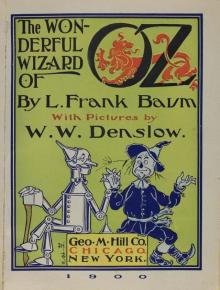 The Wonderful Wizard of Oz
The Wonderful Wizard of Oz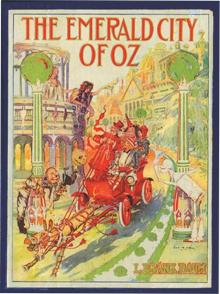 The Emerald City of Oz
The Emerald City of Oz The Story of Peter Pan, Retold from the fairy play by Sir James Barrie
The Story of Peter Pan, Retold from the fairy play by Sir James Barrie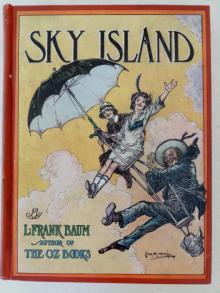 Sky Island
Sky Island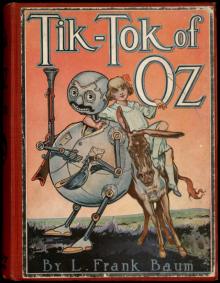 Tik-Tok of Oz
Tik-Tok of Oz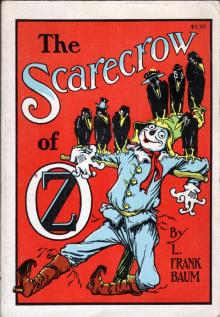 The Scarecrow of Oz
The Scarecrow of Oz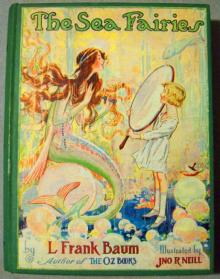 The Sea Fairies
The Sea Fairies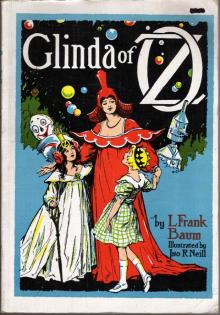 Glinda of Oz
Glinda of Oz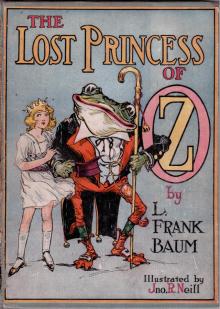 The Lost Princess of Oz
The Lost Princess of Oz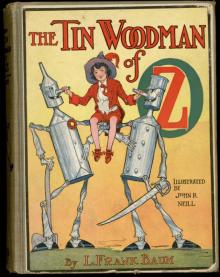 The Tin Woodman of Oz
The Tin Woodman of Oz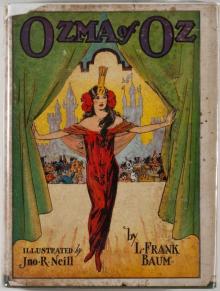 Ozma of Oz
Ozma of Oz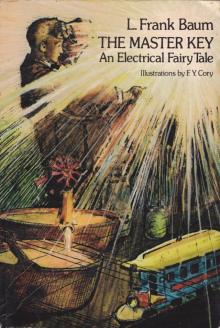 The Master Key
The Master Key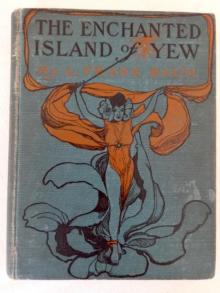 The Enchanted Island of Yew
The Enchanted Island of Yew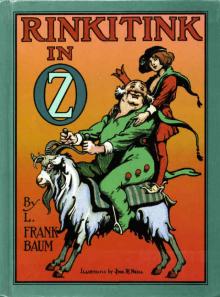 Rinkitink in Oz
Rinkitink in Oz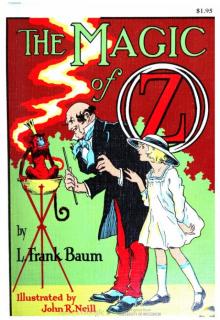 The Magic of Oz
The Magic of Oz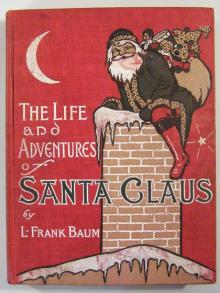 The Life and Adventures of Santa Claus
The Life and Adventures of Santa Claus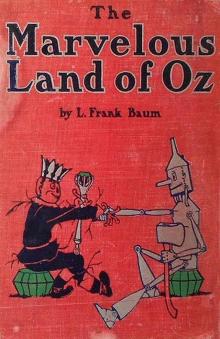 The Marvelous Land of Oz
The Marvelous Land of Oz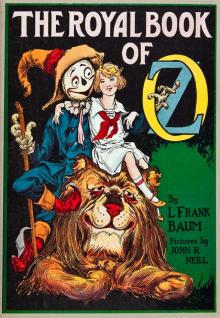 The Royal Book of Oz
The Royal Book of Oz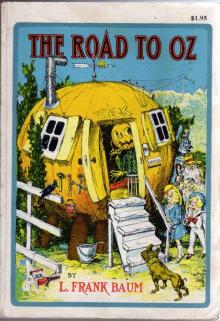 The Road to Oz
The Road to Oz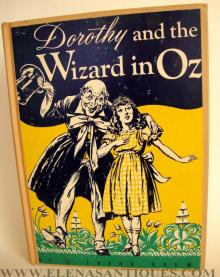 Dorothy and the Wizard in Oz
Dorothy and the Wizard in Oz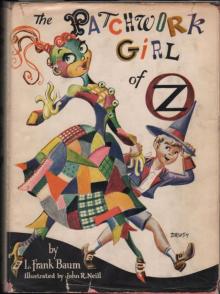 The Patchwork Girl of Oz
The Patchwork Girl of Oz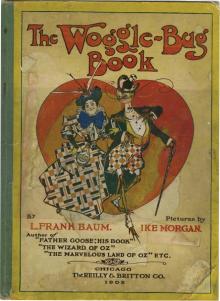 The Woggle-Bug Book
The Woggle-Bug Book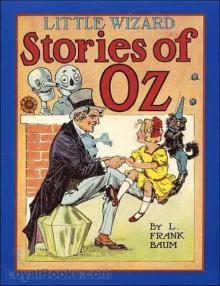 Little Wizard Stories of Oz
Little Wizard Stories of Oz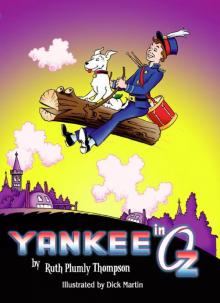 Yankee in Oz
Yankee in Oz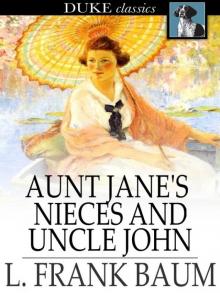 Aunt Jane's Nieces and Uncle John
Aunt Jane's Nieces and Uncle John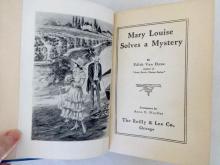 Mary Louise
Mary Louise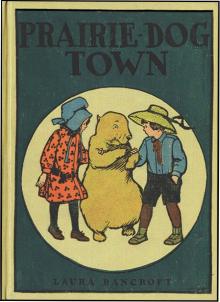 Prairie-Dog Town
Prairie-Dog Town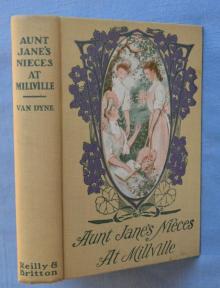 Aunt Jane's Nieces at Millville
Aunt Jane's Nieces at Millville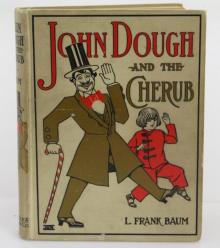 John Dough and the Cherub
John Dough and the Cherub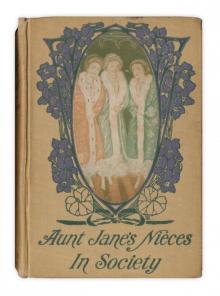 Aunt Jane's Nieces in Society
Aunt Jane's Nieces in Society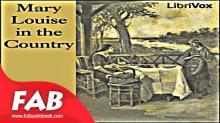 Mary Louise in the Country
Mary Louise in the Country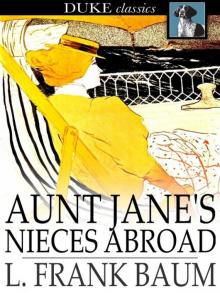 Aunt Jane's Nieces Abroad
Aunt Jane's Nieces Abroad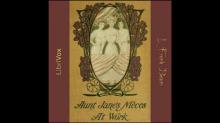 Aunt Jane's Nieces at Work
Aunt Jane's Nieces at Work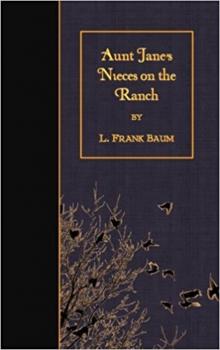 Aunt Jane's Nieces on the Ranch
Aunt Jane's Nieces on the Ranch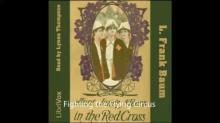 Aunt Jane's Nieces in the Red Cross
Aunt Jane's Nieces in the Red Cross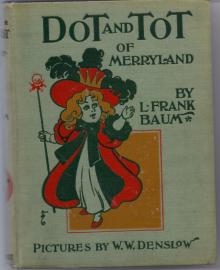 Dot and Tot of Merryland
Dot and Tot of Merryland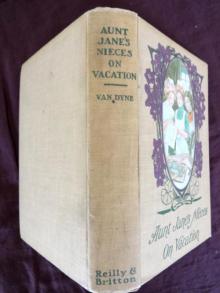 Aunt Jane's Nieces on Vacation
Aunt Jane's Nieces on Vacation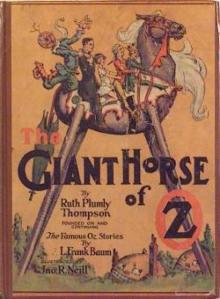 The Giant Horse Of Oz
The Giant Horse Of Oz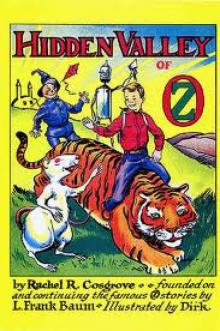 The Hidden Valley of Oz
The Hidden Valley of Oz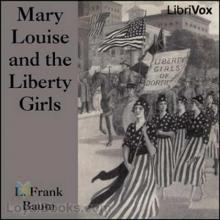 Mary Louise and the Liberty Girls
Mary Louise and the Liberty Girls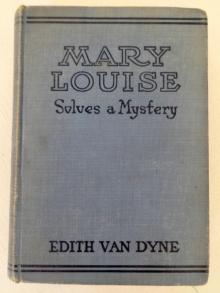 Mary Louise Solves a Mystery
Mary Louise Solves a Mystery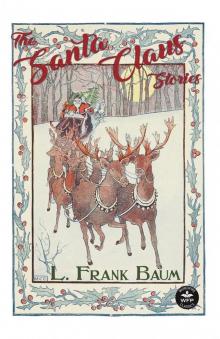 The Santa Claus Stories
The Santa Claus Stories Aunt Judith: The Story of a Loving Life
Aunt Judith: The Story of a Loving Life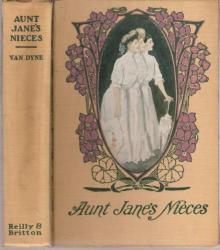 Aunt Jane's Nieces
Aunt Jane's Nieces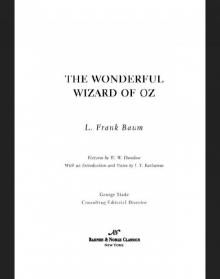 Wonderful Wizard of Oz (Barnes & Noble Classics Series)
Wonderful Wizard of Oz (Barnes & Noble Classics Series) Oz, The Complete Collection
Oz, The Complete Collection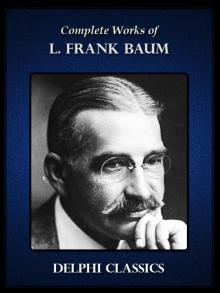 Complete Works of L. Frank Baum
Complete Works of L. Frank Baum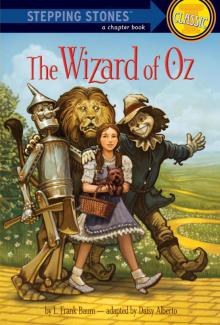 The Wizard of Oz
The Wizard of Oz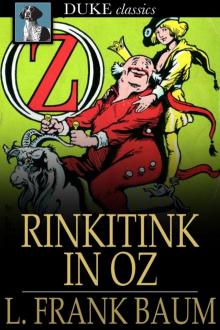 Oz 10 - Rinkitink in Oz
Oz 10 - Rinkitink in Oz